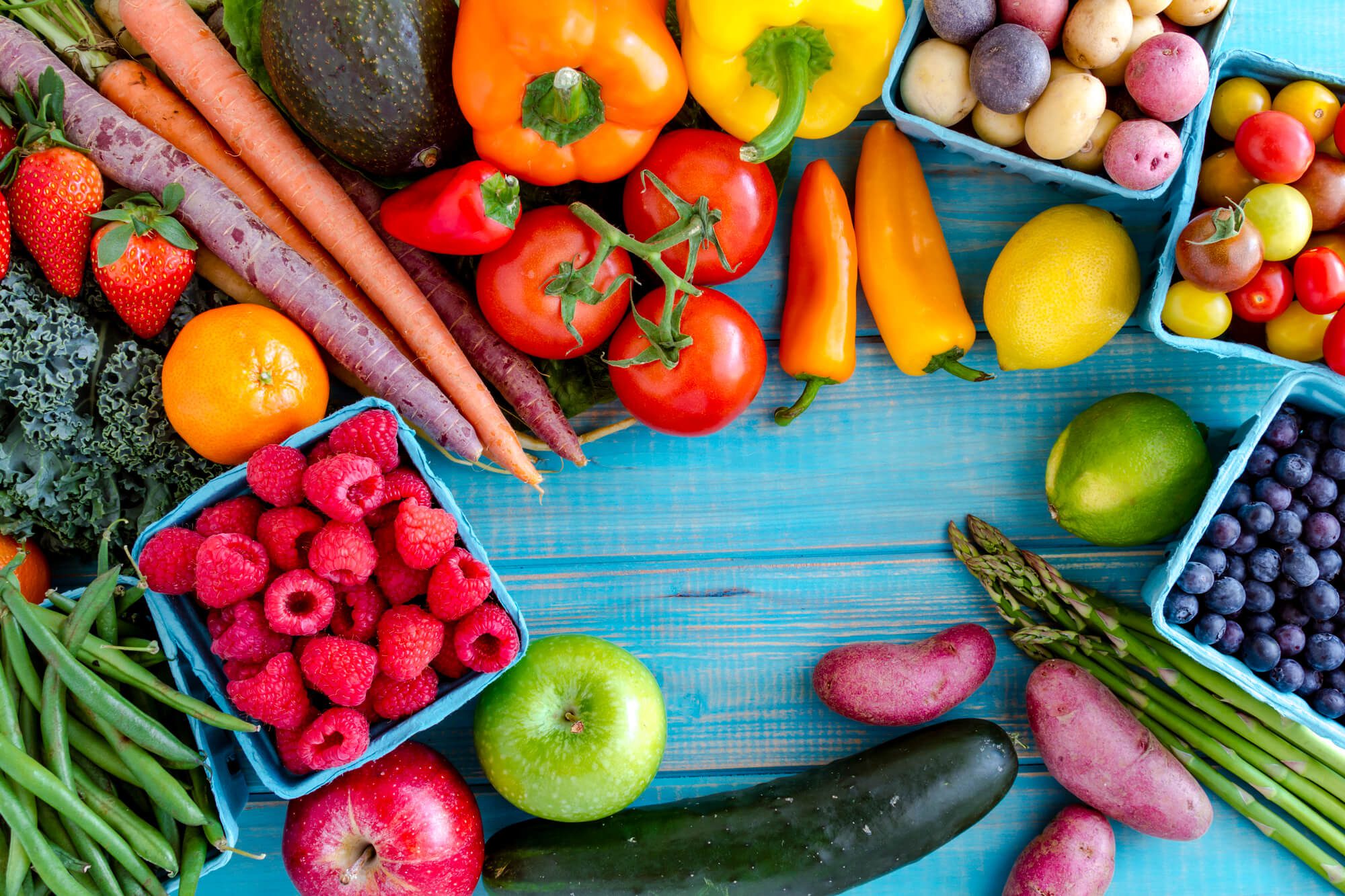5 Creative Plant Based Chicken Dishes That Go Beyond the Basics
All Regarding Healthy Food: Benefits of Embracing Plant Based Options
The discussion bordering plant-based diet regimens has actually gotten substantial interest recently. Numerous individuals are exploring the possible wellness advantages, nutritional advantages, and ecological influences connected with these dietary choices. As individuals come to be a lot more familiar with their food's influence on well-being and sustainability, inquiries develop regarding the practicalities of taking on such a way of living. What certain changes can one anticipate, and just how might these choices improve not just personal wellness however also the earth's future?
Comprehending Plant-Based Diets
Many people link plant-based diet plans mainly with vegetarianism or veganism, these diet regimens can encompass a vast variety of consuming patterns that prioritize entire, minimally processed plant foods. Such diet plans frequently consist of fruits, vegetables, entire grains, legumes, nuts, and seeds, while eliminating or restricting pet products. This versatility permits individuals to tailor their nutritional choices according to dietary needs and personal choices. Some might adopt a mostly plant-based diet regimen while still occasionally consuming meat or dairy products, often referred to as a flexitarian technique. The emphasis remains on integrating even more plant foods, which can bring about a varied array of tastes and dishes. Recognizing these various analyses of plant-based consuming is essential for appreciating its availability and allure in modern food culture.
Health Benefits of Plant-Based Foods
The health and wellness advantages of plant-based foods are substantial, offering a nutrient density advantage that supports general wellness. Research study suggests that these foods can enhance heart wellness and play an essential role in effective weight administration. By integrating a lot more plant-based choices, people may improve their dietary options and promote lasting wellness.
Nutrient Thickness Benefit
Nutrient thickness plays a crucial duty in the wellness advantages of plant-based foods, making them an engaging option for those seeking a balanced diet. Plant-based foods, such as fruits, vegetables, legumes, nuts, and whole grains, are frequently rich in essential vitamins, minerals, and anti-oxidants while being reduced in calories. This high nutrient thickness enables individuals to eat less calories while still satisfying their nutritional needs. In addition, these foods are loaded with dietary fiber, promoting digestive wellness and helping in weight management. By incorporating nutrient-dense plant-based alternatives, consumers can enhance their total health and wellness, support their immune systems, and lower the danger of chronic conditions. Eventually, the nutrient density of plant-based foods emphasizes their value in a health-conscious lifestyle.
Heart Health Improvement

Weight Management Assistance
Along with promoting heart health and wellness, a plant-based diet can substantially assist in weight management. This nutritional method emphasizes entire foods such as fruits, vegetables, vegetables, nuts, and whole grains, which are normally lower in calories and greater in fiber compared to animal-based products. The high fiber web content assists raise satiety, minimizing general calorie consumption. Plant-based diet plans are often rich in essential nutrients while low in unhealthy fats, making it less complicated to keep a healthy and balanced weight. Research indicates that people who adopt a plant-based way of life often tend to have lower body mass indexes (BMIs) and experience more successful weight-loss contrasted to those who consume meat-heavy diet regimens. Embracing plant-based alternatives is a calculated choice for efficient weight monitoring.
Nutritional Worth of Plant-Based Ingredients
Plant-based ingredients are rich in essential nutrients, supplying a varied range of vitamins, minerals, and antioxidants that add to overall wellness. A contrast of protein resources discloses that while pet products are usually considered as exceptional, several plant-based options offer ample healthy protein and various other advantageous compounds. Recognizing the dietary value of these components can aid individuals make educated dietary choices.
Important Nutrients in Plants
Nutrient-rich active ingredients located in plants offer a varied range of crucial nutrients that contribute greatly to general wellness. These components are abundant in vitamins A, C, and K, which sustain immune feature, vision, and blood clotting, respectively. Additionally, plants give crucial minerals such as magnesium, potassium, and he said calcium, critical for heart health, muscle mass feature, and bone toughness. The presence of fiber in plant-based foods aids digestion and promotes a healthy and balanced gut microbiome. Anti-oxidants, located abundantly in vegetables and fruits, assistance battle oxidative stress and anxiety and decrease inflammation. Moreover, several plant foods are reduced in calories yet high in nutrients, making them a superb selection for those seeking to keep a healthy weight while ensuring suitable nutrient intake.
Contrasting Healthy Protein Resources
Healthy protein sources differ substantially in their nutritional accounts, with plant-based components providing special benefits. Unlike pet proteins, which often include hydrogenated fats and cholesterol, plant healthy proteins have a tendency to be reduced in these harmful parts. Legumes, nuts, seeds, and whole grains are rich in vital amino acids, fiber, vitamins, and minerals. For example, lentils offer high healthy protein material along with considerable iron and folate, while quinoa is a complete protein, providing all 9 vital amino acids. In addition, plant-based healthy proteins are typically accompanied by anti-oxidants and phytochemicals that support overall health and wellness. The shift to plant-based healthy protein sources not just enhances dietary intake yet likewise straightens with sustainable nutritional practices, lowering environmental influence and promoting lasting health advantages.
Environmental Effect of Plant-Based Eating
As understanding of environment modification expands, many people are discovering sustainable nutritional choices that can considerably lessen their environmental impact. Plant-based eating has become a significant contributor to lowering greenhouse gas emissions, which are mainly linked with livestock production. The growing of fruits, vegetables, veggies, and grains commonly needs less sources, such as water and land, compared to pet farming. Additionally, plant-based diets can cause lowered logging, as less land is needed for grazing livestock or growing animal Clicking Here feed. By moving in the direction of plant-based alternatives, customers can sustain biodiversity and advertise much healthier ecosystems. In general, accepting plant-based eating not only advantages individual health and wellness yet additionally stands for a vital action towards ecological sustainability and preservation initiatives.
Conquering Common Misconceptions
While several people identify the advantages of a plant-based diet regimen, numerous misconceptions frequently discourage them from completely embracing this way of life. A typical belief is that plant-based diets do not have enough healthy protein; nevertheless, countless plant resources, such as vegetables, nuts, and tofu, offer sufficient protein. Additionally, some think that this diet regimen is costly, when in truth, staples like beans, rice, and seasonal vegetables can be quite economical. Another misunderstanding is that plant-based consuming is extremely restrictive, whereas it actually supplies a varied range of tastes and foods. Lastly, numerous worry that a plant-based diet regimen may lead to shortages, yet with appropriate preparation, people can acquire all needed nutrients, including minerals and vitamins, while enjoying a wide array of tasty meals.
Tips for Transitioning to a Plant-Based Way of life
Making the shift to a plant-based way of life can be an enriching experience, though it commonly requires some support to navigate the preliminary adjustments. First, people are encouraged to begin progressively, incorporating even more fruits, veggies, vegetables, and entire grains right into their meals while minimizing meat and dairy usage. Dish preparation is important; preparing a regular food selection can help relieve the modification and protect against final unhealthy options. Checking out brand-new dishes and cooking methods can additionally boost the experience and maintain enjoyment regarding plant-based consuming. In addition, signing up with support system or communities can provide motivation and share important suggestions. Remaining educated concerning nourishment warranties well balanced meals, stopping deficiencies while promoting a healthy, rewarding plant-based lifestyle.

Delicious Plant-Based Meal Concepts
Discovering tasty plant-based dish ideas can influence people to embrace a much more nourishing diet. One prominent alternative is a hearty quinoa salad, featuring cherry tomatoes, cucumber, and a vibrant lemon-tahini dressing. Another fave is a full-flavored lentil stew, packed with carrots, celery, and aromatic natural herbs, excellent for a reassuring dinner. For morning meal, over night oats made with almond milk, chia seeds, and covered with fresh berries provide a healthy begin to the day. In addition, a vibrant vegetable stir-fry with tofu and a range of vibrant veggies can be a fast yet pleasing dish. Finally, creamy avocado toast on whole-grain bread, sprinkled with seasonings and seeds, supplies a simple yet tasty snack. These meals display the variety and splendor of plant-based consuming.

Regularly Asked Inquiries
Can a Plant-Based Diet Plan Give Sufficient Protein?
The question of whether a plant-based diet regimen can provide enough protein is common. Many resources, consisting of beans, nuts, seeds, and entire grains, can fulfill protein requires successfully, supporting a healthy and well balanced diet plan for individuals.
Are Plant-Based Diet Regimens Suitable for Kid?
The viability of plant-based diets for kids depends upon careful preparation. Appropriate nutrients should be assured, including healthy proteins, minerals, and vitamins. With correct support, such diet plans can sustain healthy development and growth in kids.
How Do I Eat in restaurants on a Plant-Based Diet?
Eating out on a plant-based diet regimen involves seeking restaurants with diverse food selections, requesting for modifications, and checking out vegan-friendly alternatives. Planning ahead and look at this website interacting nutritional preferences can improve the eating experience while maintaining nutritional choices.
What Prevail Irritants in Plant-Based Foods?
Common allergens in plant-based foods include soy, gluten, nuts, and seeds - Gluten Free BBQ Sauce. Individuals complying with a plant-based diet plan needs to understand these allergens and review labels very carefully to stay clear of damaging reactions and guarantee risk-free usage
Can Plant-Based Diets Aid With Weight-loss?
Research study indicates that embracing a plant-based diet plan may facilitate weight-loss because of its usually reduced calorie thickness and greater fiber material. This mix can boost satiation, assisting people handle their caloric consumption successfully. Numerous people link plant-based diet plans mainly with vegetarianism or veganism, these diet plans can incorporate a large array of consuming patterns that prioritize entire, minimally refined plant foods. Nutrient thickness plays an essential duty in the wellness advantages of plant-based foods, making them an engaging selection for those looking for a well balanced diet plan. Plant-based diets have been shown to significantly enhance heart health, as they frequently contain aspects that support cardiovascular feature. In enhancement to promoting heart health, a plant-based diet can considerably assist in weight monitoring. A typical belief is that plant-based diet regimens do not have enough protein; however, countless plant resources, such as beans, nuts, and tofu, supply sufficient protein.